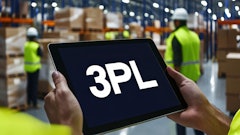
In the “Age of the Customer,” it’s no surprise that nearly three-quarters of businesses say improving customer experience is their top priority. For organizations with complex shipping operations, the supply chain offers one of the best opportunities to impact customer satisfaction directly.
An effective supply chain can delight customers through timely service and clear communication, while late or inaccurate deliveries erode customer trust fast. As shippers seek to meet growing customer expectations, many are turning to process enhancements across the supply chain. In a recent retailer study, for example, 71 percent said they need to improve access to clear order, consumer and carrier data for shipments to deliver a quality customer experience.
With unpredictability lurking throughout the supply chain, getting goods to the right place at the right time also requires proactive, around-the-clock management. From capacity crunches to an unexpected call from regulators, shippers need deep supply chain expertise and careful attention to detail to find solutions that minimize impact to their own customers.
A Shared Focus on Customer Experience
To help them manage increasingly complex supply chain operations, 90 percent of Fortune 500 companies now rely on third-party logistics providers, a figure that has doubled since 2001. These partnerships go far beyond the transactional: Three out of four shippers say they depend on their supply chain partners for innovative ways to enhance logistics effectiveness, a recent Council of Supply Chain Management Professionals study found.
As businesses seek to enhance the customer experience, a supply chain partner equally focused on customer satisfaction—both for the shipper and its customers—is key to meeting that goal. By combining technology, processes, industry relationships and service, the right provider can help businesses build stronger customer relationships in the following ways:
- They create efficient technology-driven processes. From spreadsheet-based processes to outdated systems, many businesses lack the right technology to manage operations effectively. Two-thirds of retailers, for example, say their current systems do nothing to improve the customer delivery experience. A partner that offers a single platform for all data, from purchase order to final destination, can help businesses can gain a clear view of the entire supply chain. Features like exception-based management allow shippers to identify what needs attention and head off potential issues quickly, rather than wading through data on every shipment. That said, technology alone won’t deliver the supply chain control that large shippers need. As businesses juggle a changing mix of shipping locations, modes and carriers, a dedicated provider that understands their supply chain and their business can help them adapt systems and processes accordingly.
- They help shippers address issues when—or before—they arise. When you’re facing a potential disruption, speed and expertise are essential to fix problems before they spiral. A supply chain provider who takes the time to understand customers’ shipping preferences, employee workflows, reporting requirements and business rules can offer immediate, knowledgeable support. For example, when U.S. customs officials contacted one tire distributor with questions about countervailing duties, the business turned to its supply chain partner for assistance. The provider attended an on-site interview and gave a thorough overview of distributor’s import compliance program, helping the business avoid a potentially lengthy audit and importing issues that could have compromised customer deliveries.
- They ensure accuracy. Providers that offer a dedicated support team to each business can help ensure nothing falls through the cracks, keeping the shipper’s customers happy while allowing the business to focus on other priorities. That point of contact is accountable for verifying data, shipping milestones and other due diligence needed to move goods around the globe. This allows businesses to reallocate internal resources, focusing on other aspects of the business to create differentiated customer experiences.
Choosing a Provider
As your business consider potential supply chain partners, do your research to uncover which ones are as devoted to customer experience as you. Network with companies both in and out of your industry, develop a short list of candidates, and review key analyst and research insights to find the right fit. By combining hands-on support, technology and logistics services, a dependable partner can be a valuable asset in your company’s efforts to deliver customer experiences that are memorable for the right reasons.




![Pros To Know 2026 [color]](https://img.sdcexec.com/mindful/acbm/workspaces/default/uploads/2025/08/prostoknow-2026-color.mduFvhpgMk.png?auto=format%2Ccompress&bg=fff&fill-color=fff&fit=fill&h=100&q=70&w=100)







![Pros To Know 2026 [color]](https://img.sdcexec.com/mindful/acbm/workspaces/default/uploads/2025/08/prostoknow-2026-color.mduFvhpgMk.png?ar=16%3A9&auto=format%2Ccompress&bg=fff&fill-color=fff&fit=fill&h=135&q=70&w=240)




